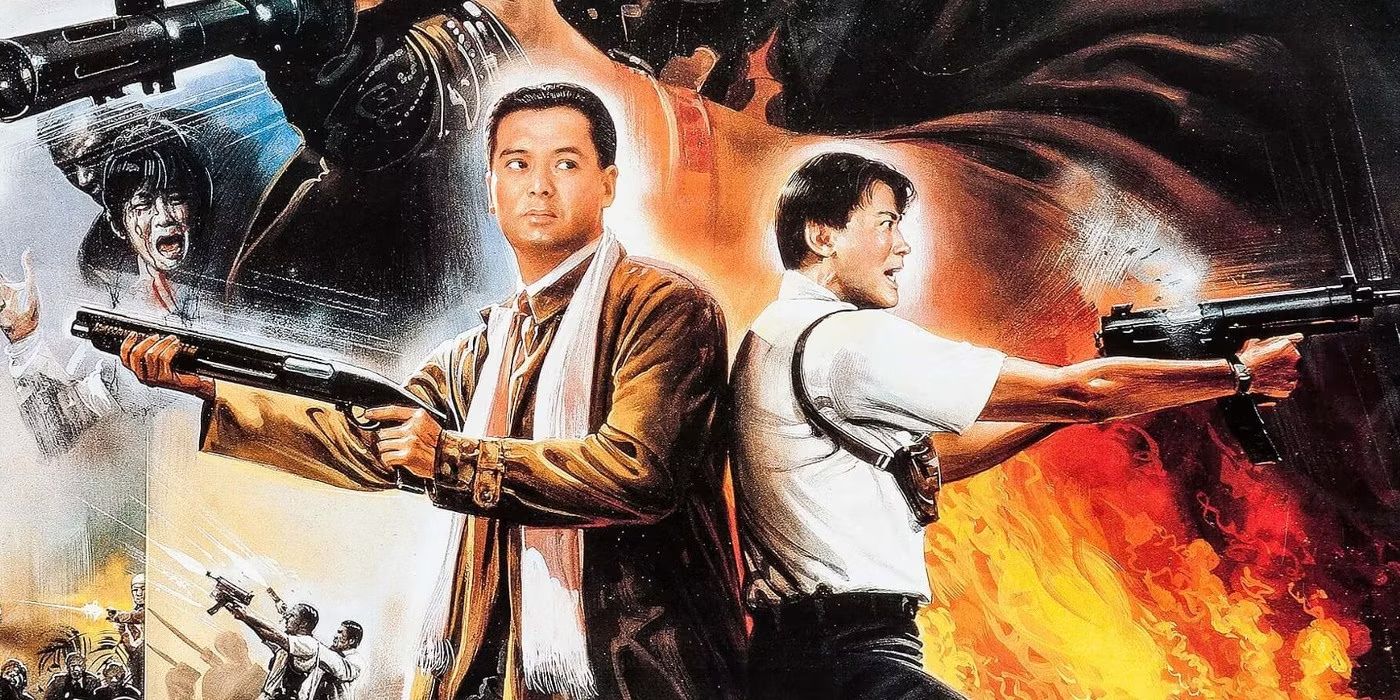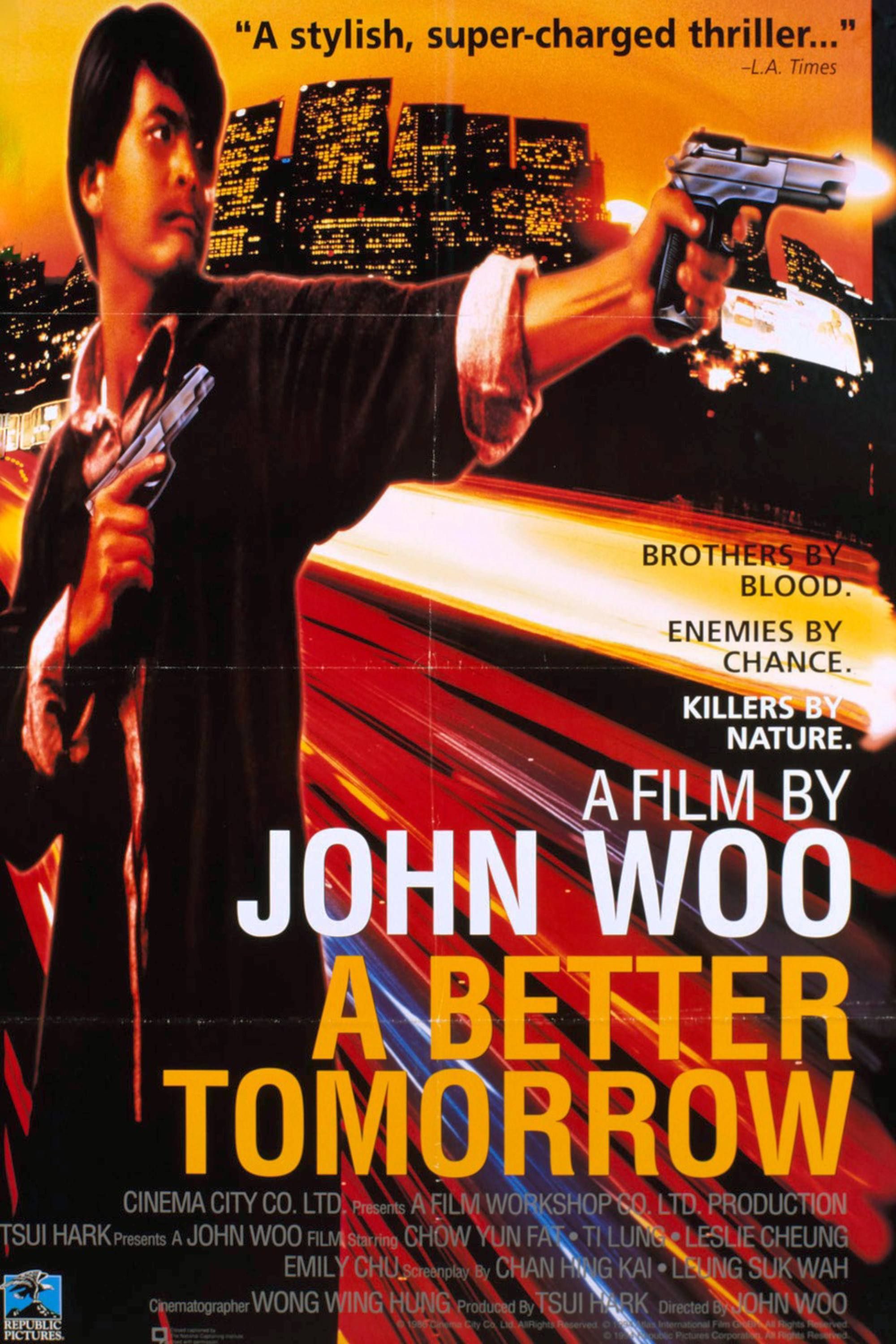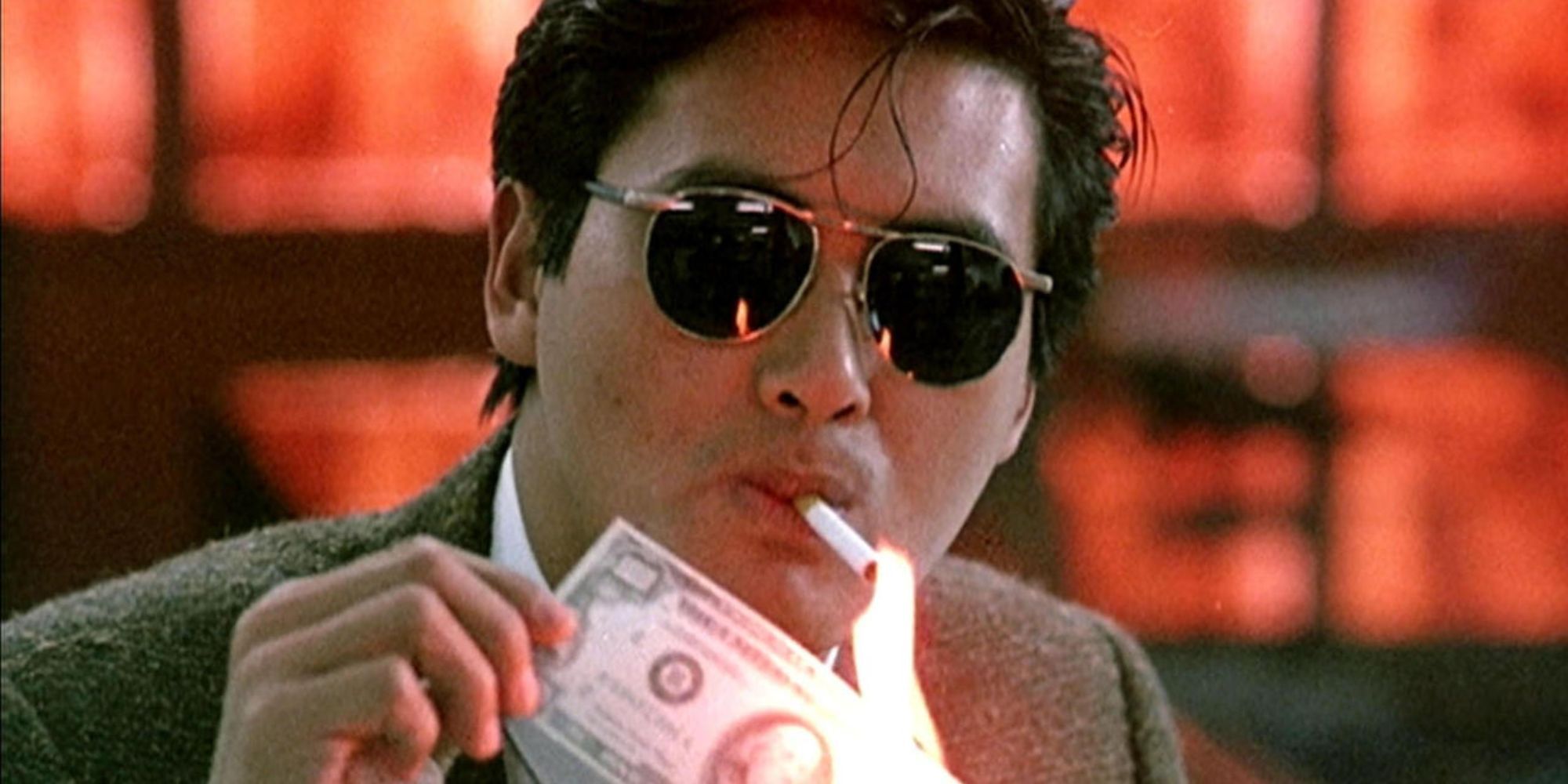For more than 50 years, the cinematic language of visionary Hong Kong filmmaker John Woo has influenced the action movie genre worldwide. His classics from the East such as The Killer and Hard-Boiled proved that the genre can have deep, emotional stories as strong as the spectacle of gunfights and bloodshed. Woo’s signature use of slow-motion action sequences, Mexican standoffs, and twin-fisted gun play would evolve the genre during the ‘90s as Hollywood directors including Robert Rodriguez and Michael Bay implemented his visual style into their work.
Much of today’s audience might remember Woo best for his Hollywood hits, including Face/Off, Mission: Impossible 2, and his most recent theatrical release, Silent Night. Had it not been for his breakout 1986 crime-thriller A Better Tomorrow, however, it is very possible Woo’s influence would not have made it to the West. As the first movie where he had creative control, Woo’s A Better Tomorrow kicked off the action subgenre of “heroic bloodshed” and turned its actor Chow Yun-Fat into a cultural icon for years to come.
What Is ‘A Better Tomorrow’ About?
Before the making of A Better Tomorrow, Woo had specialized in martial arts pictures and Jackie Chan-style comedies for studios like Golden Harvest. Yet, his true desire was to create a crime-thriller inspired by Jean-Pierre Melville’s Le Cercle Rouge and Martin Scorsese’s Mean Streets. With the help of producer Tsui Hark, Woo overcame rejection from multiple Hong Kong studios and would get A Better Tomorrow produced at the company Cinema City. With few restrictions in the way, Woo was able to make the movie he wanted and implemented the cinematic style that became his signature stamp for years to come.
The story follows the lives of Ho (Ti Lung) and Mark (Yun-Fat), Hong Kong triad members who specialize in counterfeit money laundering. Ho is conflicted by his younger brother Kit (Leslie Cheung), an aspiring police cadet unaware of his business. Simultaneously, the brothers’ sick father urges Ho to quit the life of crime for good. When a bad deal goes down with a rival gang, Ho is sent to prison, his father murdered by the triads, and Mark gets permanently crippled from a gunshot to the leg. Three years pass when Ho is released from jail, and he starts his life over as a cab driver. His relationship with Kit is strained and former triad colleague Shing (Waise Lee) takes full control of the gang. With a powerless, but defiant Mark’s help, Ho is sworn to bring the triads down, as does Kit on his own.

Related
This John Woo Classic Remains The Undisputed King of Hong Kong Action Movies
This John Woo film forever changed the action genre.
While the premise reads like a soap opera episode, A Better Tomorrow was the first movie in Woo’s career that emphasized his values of family, friendship, and loyalty. Much like The Godfather, the movie depicts how crime can tear a family apart and how one man can be torn between his family and his loyalty to a partner. Ho’s love for his brother Kit is just as strong as his bond with Mark throughout the story. They represent a difficult tightrope for Ho to walk, as Kit wants justice for their father’s death, while Mark desires the power he lost as a triad member. But through all the difficult relationships and violence, all Ho wants is to fulfill his father’s wish to restart his life.
‘A Better Tomorrow’ Made Chow Yun-Fat Into An International Superstar
A Better Tomorrow’s initial focus was on the former Shaw Brothers star Lung, and pop star Cheung as brothers on opposite sides of the law. However, the true standout of the film was Yun-Fat as the charismatic gangster Mark. At the time, he was primarily a television star with a lackluster track record at the Hong Kong box office. But Woo saw positive values in Yun-Fat that he wanted to be translated to Mark. Despite his love for the excess of money and power, Mark’s true desire was never to feel helpless ever again. Early in the film, Mark recounts the story of how he and Ho were forced to drink urine at gunpoint on their first deal 12 years prior. Such a traumatic moment in Mark’s life only made him resort to violence as a means of self-preservation.
The signature moment in the film that turned Yun-Fat into a star was when Mark takes out the men responsible for Ho’s bad deal in a restaurant. Between Woo’s slow-motion camerawork and the gun-blazing Mark blasting his enemies with twin pistols, Yun-Fat’s performance oozed charisma reminiscent of Robert De Niro and Al Pacino. Following A Better Tomorrow’s release in 1986, Yun-Fat became an overnight superstar as young Chinese men sought after his character’s duster trenchcoat and Alain Delon sunglasses in stores. He would become Woo’s frequent collaborator in the subsequent films A Better Tomorrow II, Once A Thief, The Killer, and Hard-Boiled.
The complex relationships, heartbreak, and early use of heroic bloodshed made Woo’s A Better Tomorrow the pioneer in action cinema’s dramatic shift for the years that followed. If any fan of the genre wants to understand how action cinema shifted from the muscle-bound films of the ‘80s to the more artistic, emotionally driven action films of today, like John Wick, A Better Tomorrow is the best place to start.

A Better Tomorrow is a Hong Kong action film that centers on two brothers, one a respected police officer and the other a reformed criminal. Their loyalty and family bonds are tested as they confront a powerful criminal syndicate.
- Release Date
- August 2, 1986
- Runtime
- 95 Minutes
A Better Tomorrow is currently not available to stream in the U.S.
Source link


